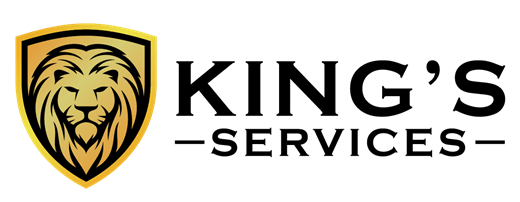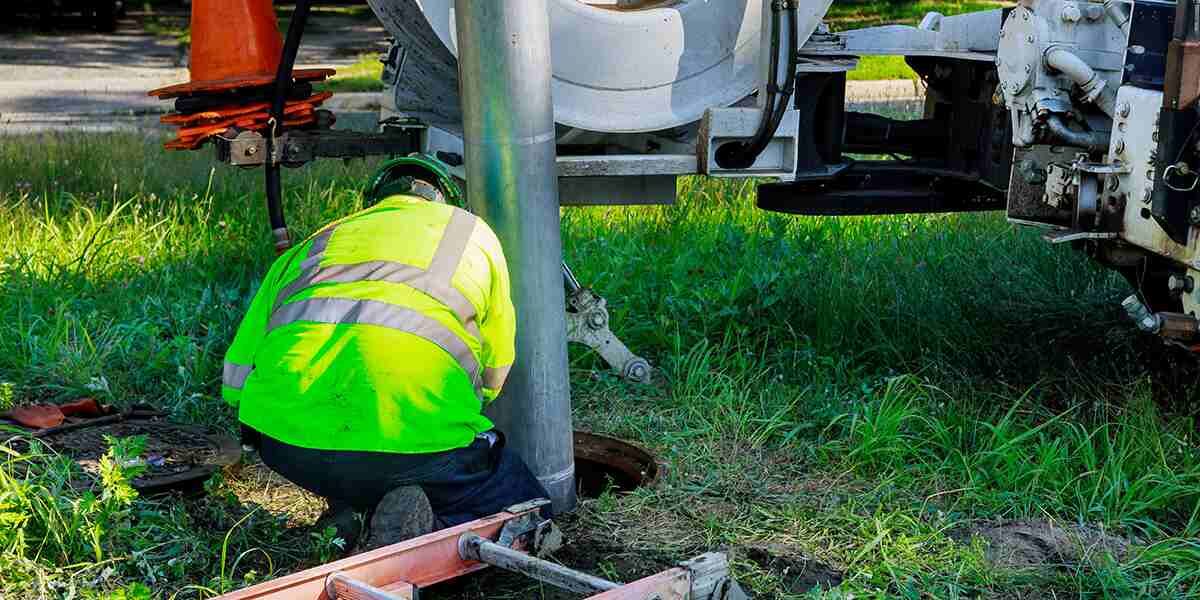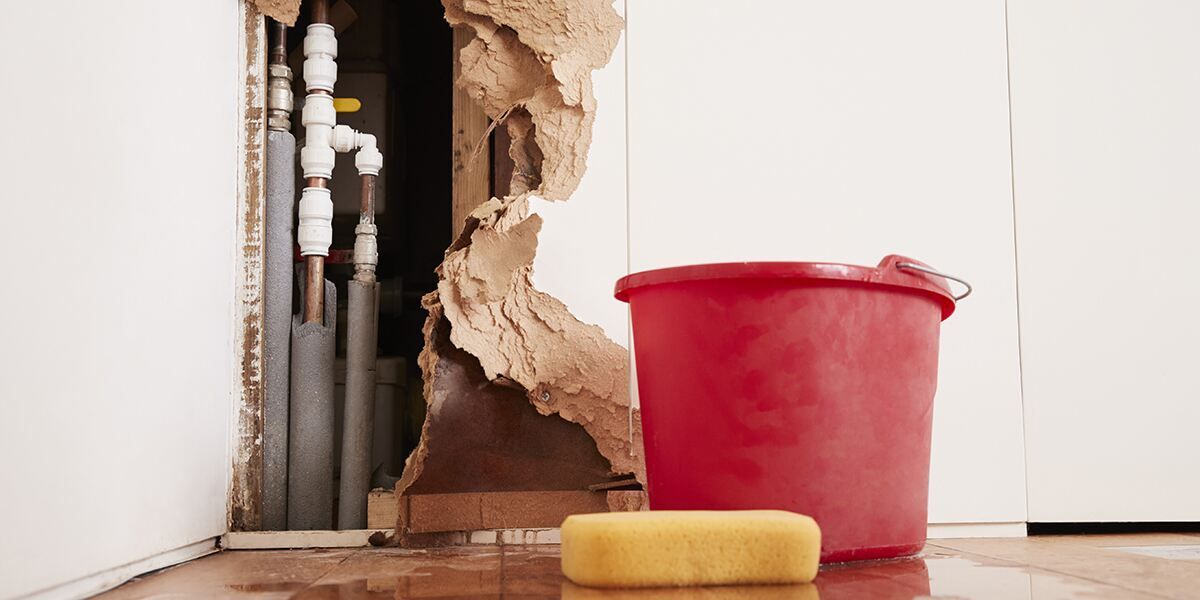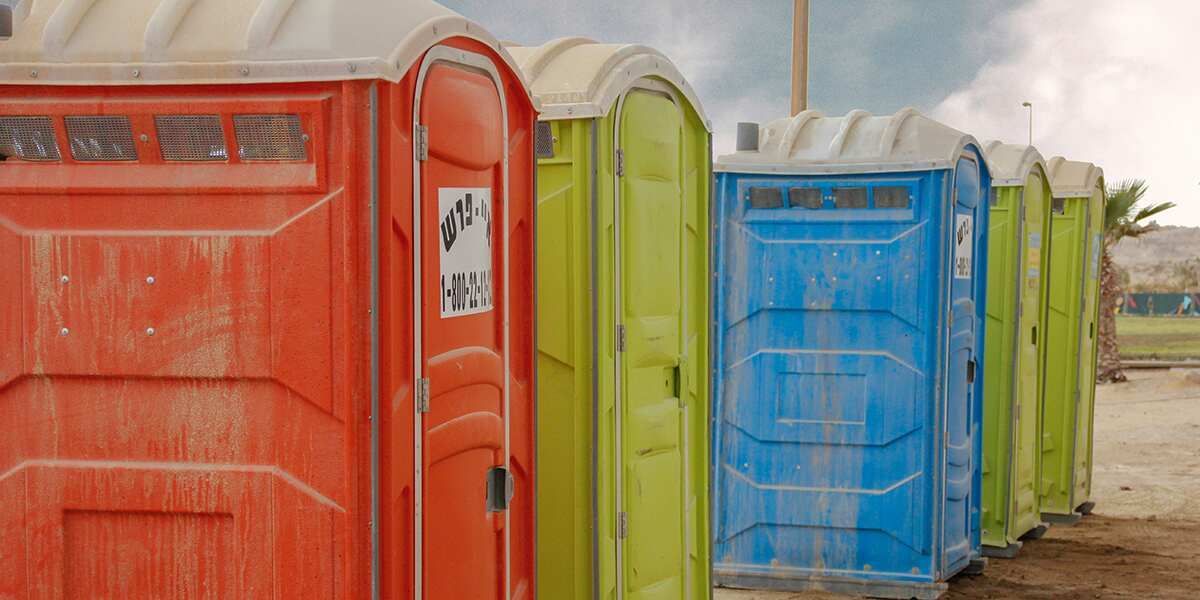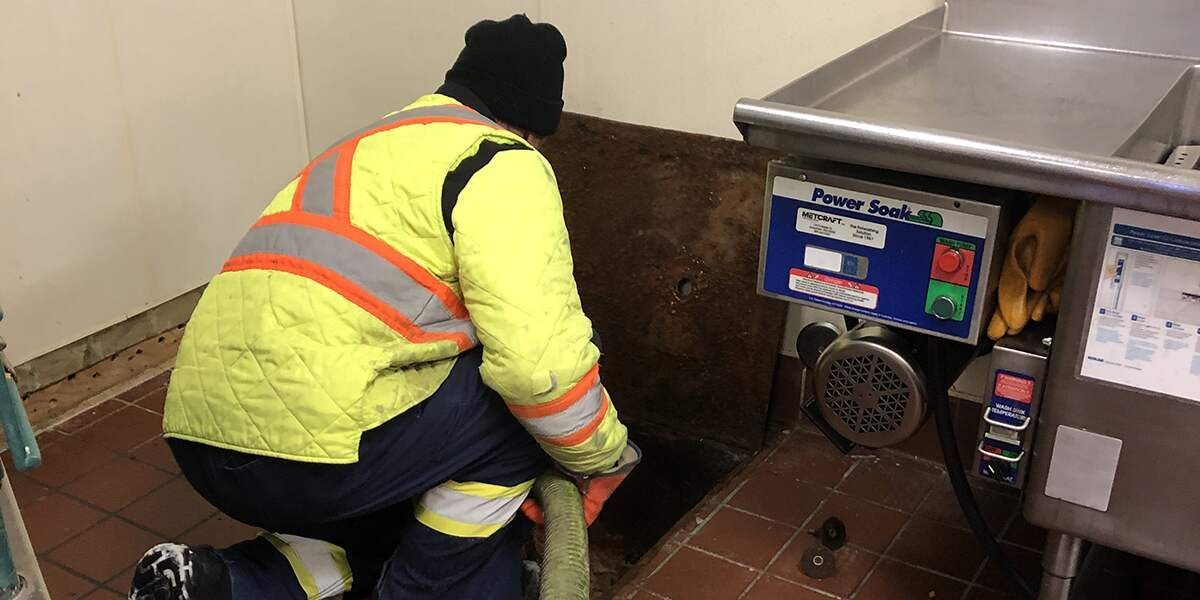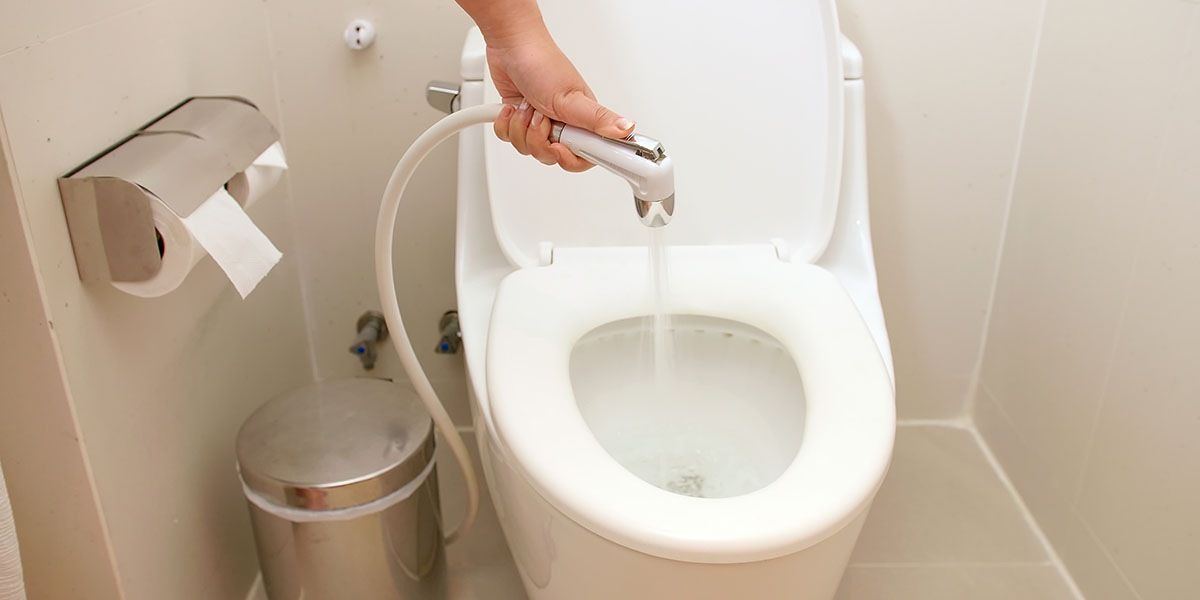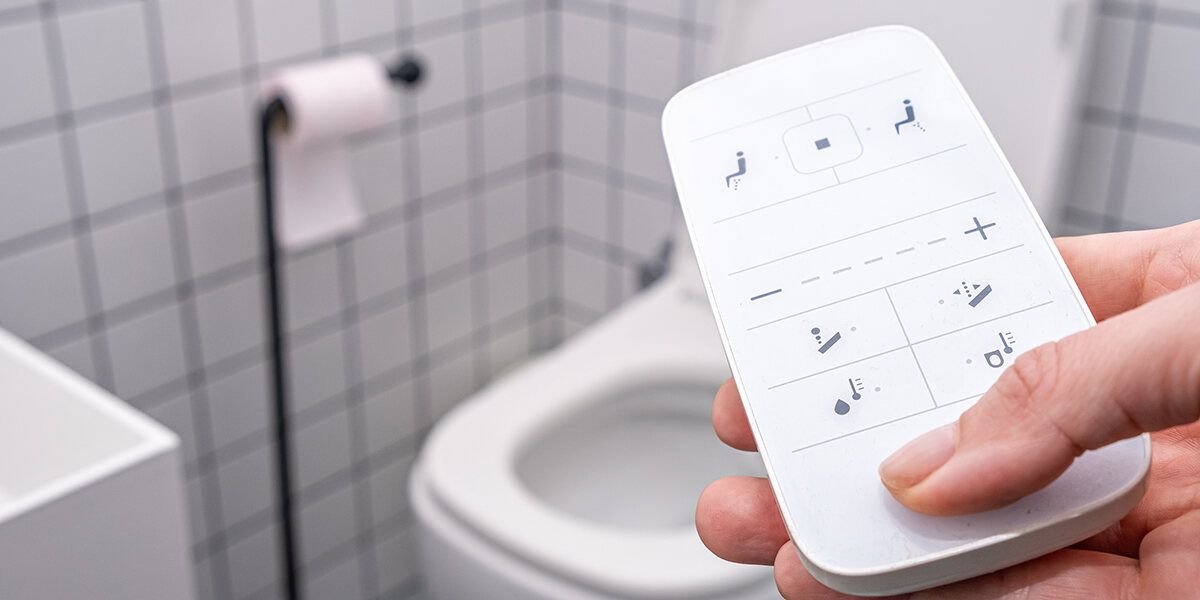Servicing Headingley, winnipeg and surrounding areas
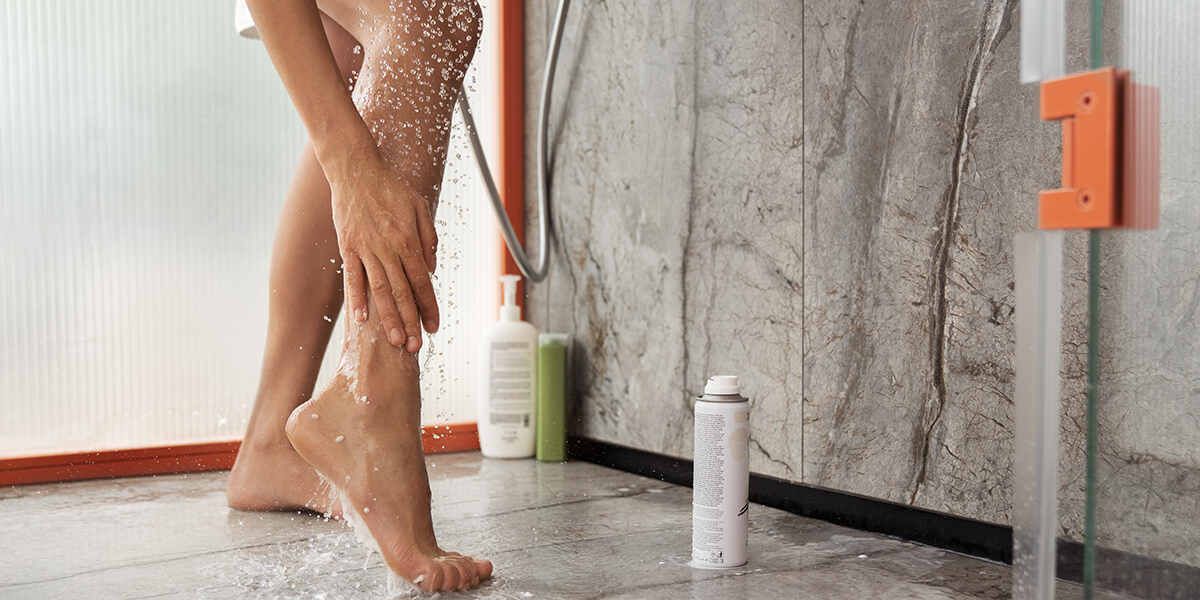
Are you worried about a full septic tank and wonder, "Does your shower water go into the septic tank?" Keep reading to discover what King's Services suggests you do if you worry about a full septic tank. As a provider of reliable septic inspection services, we're passionate about keeping your home free of problematic septic backups.
How Your Septic Tank Works
Your septic tank sits outside your home, and it collects the wastewater from your property before using natural processes to break down the solid components within the tank. After bacteria in the tank breaks down the sludge, it drains the remaining liquid into a field away from your home. Even with biodegradation, the process leaves some sludge in your tank, which builds up over time.
All the water from your home enters the septic tank, including that from your washing machine, shower, toilet, and kitchen sink. Experts call this gray water. Without proper maintenance, your septic tank can overflow, which can prevent you from showering, flushing your toilet, or doing dishes without problems.
Signs You Should Avoid Showering With a Full Septic Tank
Does your shower water go into the septic tank? Yes, and if you notice any of the following signs, you should avoid showering until you drain your septic tank:
- Pooling water: Pooling water around the drain field or septic tank is the most common sign you should empty your tank, especially when it hasn't rained recently.
- Slow draining: Do you notice the water pooling around your ankles as you shower or your kitchen sink draining slower than normal? You either have a clogged pipe, or your septic tank is reaching capacity. Either way, you need a qualified plumber to solve the problem.
- Bad smell: In general, your septic tank should contain the sewage smell so you don't have to experience it. But when your tank fills up, it can back up into your yard, which means you'll notice the smell of sewage near your tank.
- Unusually healthy lawn: Sewage acts like a fertilizer, so when it starts leaking, the grass in the area looks unusually healthy. While you might enjoy the lush grass, it won't match the rest of the yard, and it's not worth the complications of an overflowing septic tank.
- Backflowing wastewater: A full septic tank can force sewage back into your sink, shower, toilet, or basement. Because of the health risks of wastewater, if you notice sewage backing up into your home, call a plumber for emergency help.
- Gurgling water: Does your toilet gurgle when you flush? That sound occurs when water trapped in your pipe finally exits your pipes. Whether the clog is in your pipe or septic tank, a plumber can help before more serious problems arise.
- Problems flushing: Toilets are one of the first places homeowners realize they have a plumbing problem because it's one of the most-used things in your home. If your toilet flushes slower than usual or if you experience an unusual number of clogs, you likely have a backed-up septic tank.
Tips for Maintaining Your Septic Tank
To avoid clogs, leaks, and backups that could prevent you from enjoying showers or doing laundry, use the following best practices.
Empty It Regularly
Experts suggest you pump your septic tank every three to five years to prevent it from backing up. The necessary frequency depends on several factors, including the number of people in your home and whether you have a garbage disposal or a water softener.
When they pump the sludge out of your septic tank, the plumber can also inspect it for leaks and other issues that could lead to more severe problems.
Avoid Certain Materials
In general, only toilet paper and wastewater should go down your drains. To avoid clogs in your sewage system, never drain the following materials:
- Paint and paint thinners, which can corrode your pipes and cause leaks in your tank
- Gasoline and motor oil
- Grainy solids like cat litter or coffee grounds
- Small, stubby solids like cigarette butts or earplugs
- Disposable diapers and flushable wipes
- Sanitation products like dental floss, tampons, and paper towels
- Plastics
- Food byproducts that easily change their state of matter, like fat, grease, and oil
- Other corrosive materials, such as common cleaning products, chemicals for developing photos, drain cleaners, and solvents
Spread Out Your Waste
While having a designated laundry day feels like a convenience, if you have a septic system, doing all your laundry in one day puts a lot of stress on it. Your system requires time to process and expel the wastewater, so doing all your laundry at once, especially if you also shower and do dishes, can overload the system.
Spread out your laundry throughout the week and avoid doing more than one load a day. If you can, also limit how frequently you do dishes or wash them by hand in smaller amounts rather than a large load in the dishwasher.
Finally, while you can enjoy the occasional long shower, limit how frequently you take them, especially on days you plan to do other chores that require a lot of water. When you want to relax in hot water, consider a bath instead. In general, a 10-minute shower uses the same amount of water as filling your bathtub.
Protect Your Drainfield
Stay vigilant and watch how much water pools in your drainfield so you can detect any problems early. Never drive over or park on your drainage field, as too much weight can damage the area. Finally, never plant trees or shrubs in the field, as they can destroy the drainage pipes.
Contact King's Services for Dependable Septic Tank Services
Does your shower water go into the septic tank? Yes, and King’s Services can help keep your septic tank fully functional so you don't have to worry about overflowing. Whether you have a garbage disposal with a septic tank or need portable toilets for your event or property, you won't find a more reliable way to handle your waste.
Call 431-244-4966 today to learn what we can do for you.
Newsletter Sign Up:
Newsletter Sign Up
We will get back to you as soon as possible.
Please try again later.
Newsletter Sign Up
We will get back to you as soon as possible.
Please try again later.
Contact Information
King's Services
Location: 49 Headingley Street Headingley, MB R4H 0A8 Canada
Phone: 204-633-9010
All Rights Reserved | King's Services

